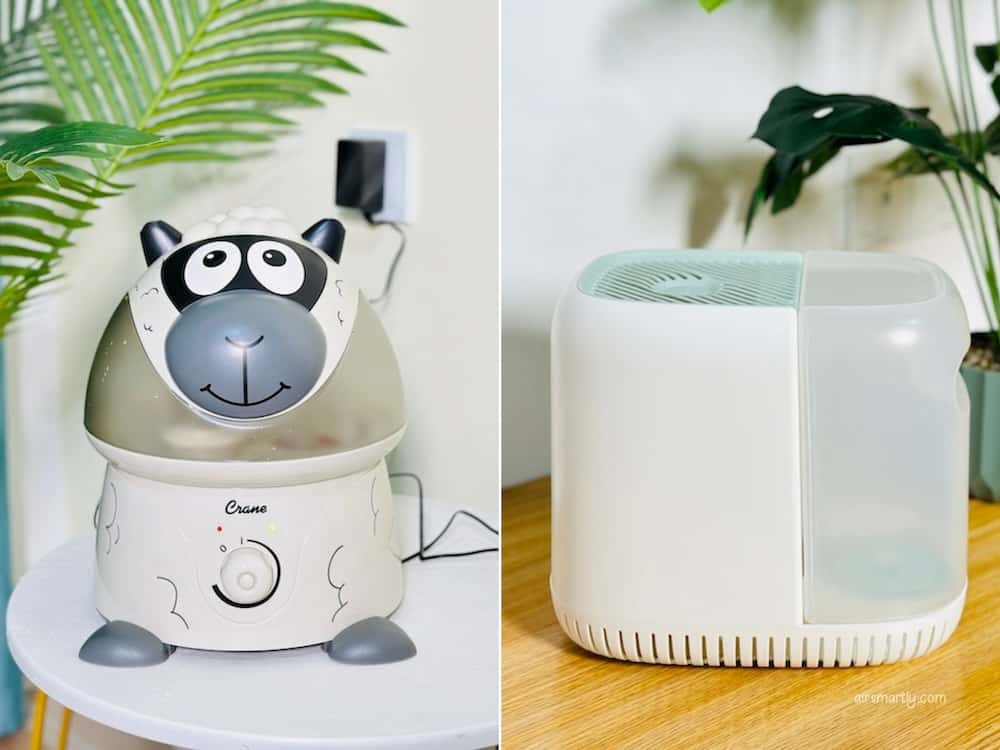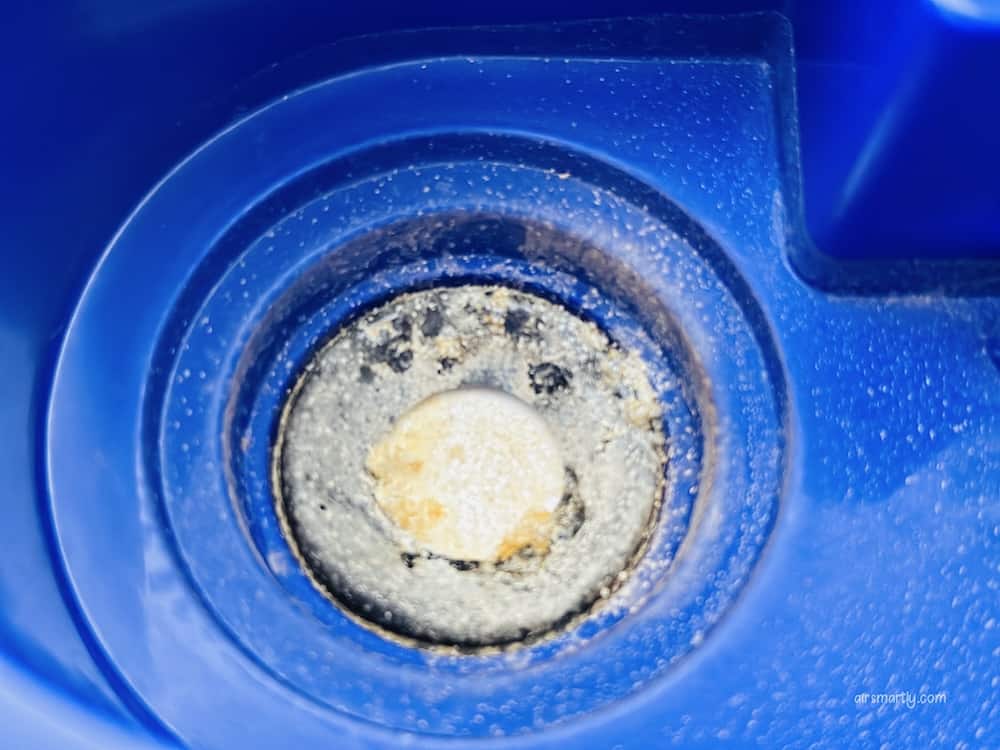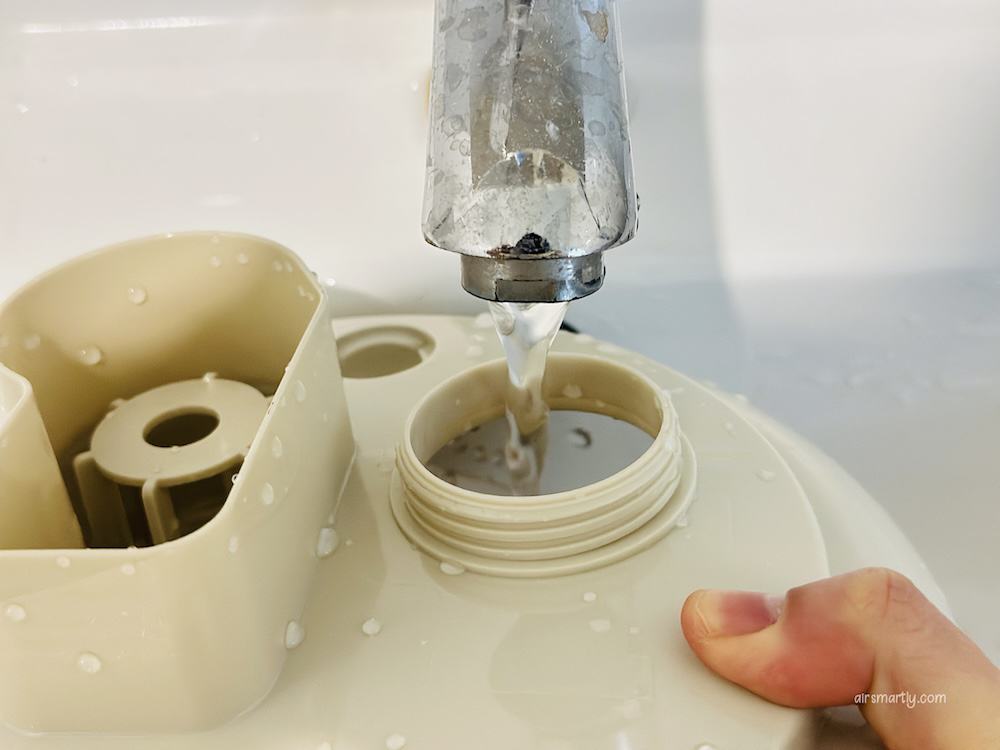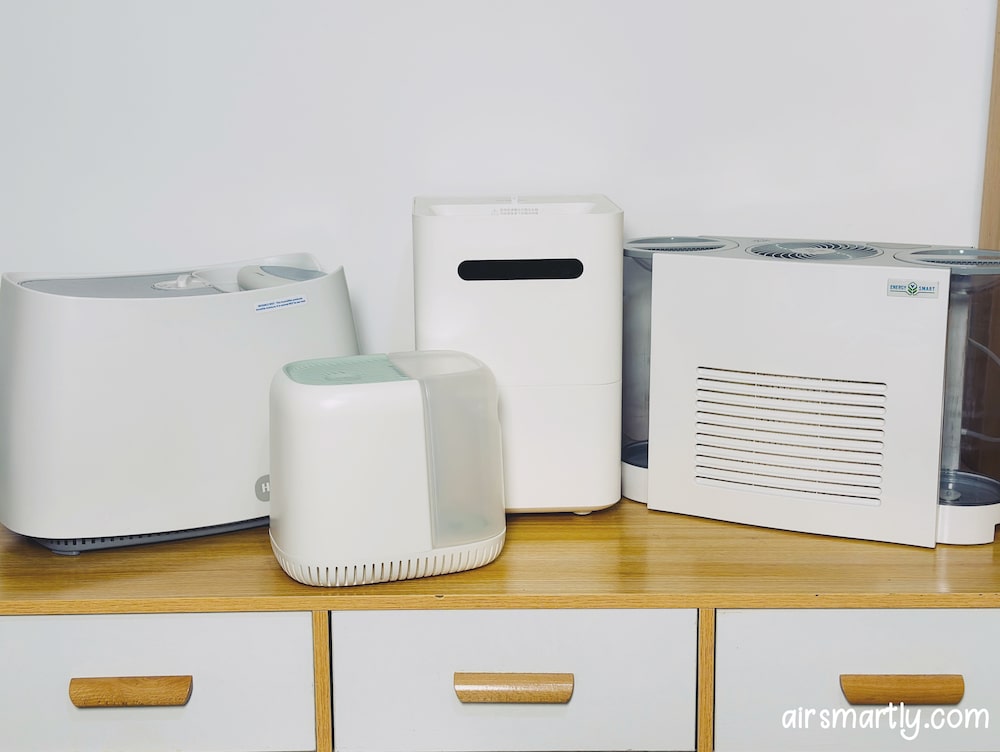Humidifiers can be an asset to your home if you deal with dry air or poor air quality. But many people wonder about filterless humidifiers versus filtered humidifiers? Do you need to use a filter? What is the difference? This article is your complete guide to the grand debate of a filterless humidifier vs filtered humidifier.
It’s undeniable that a filtered humidifier is better for your health and air quality. But that doesn’t mean it’s the right choice for every individual. Keep reading to learn when it’s okay to skip the filters and when you need to use them.
Filterless Humidifier Vs. Filtered Humidifier: Comparing the Pros and Cons
To help you decide the best humidifier option for your home and family, weigh the pros and cons below.
Filterless Humidifier
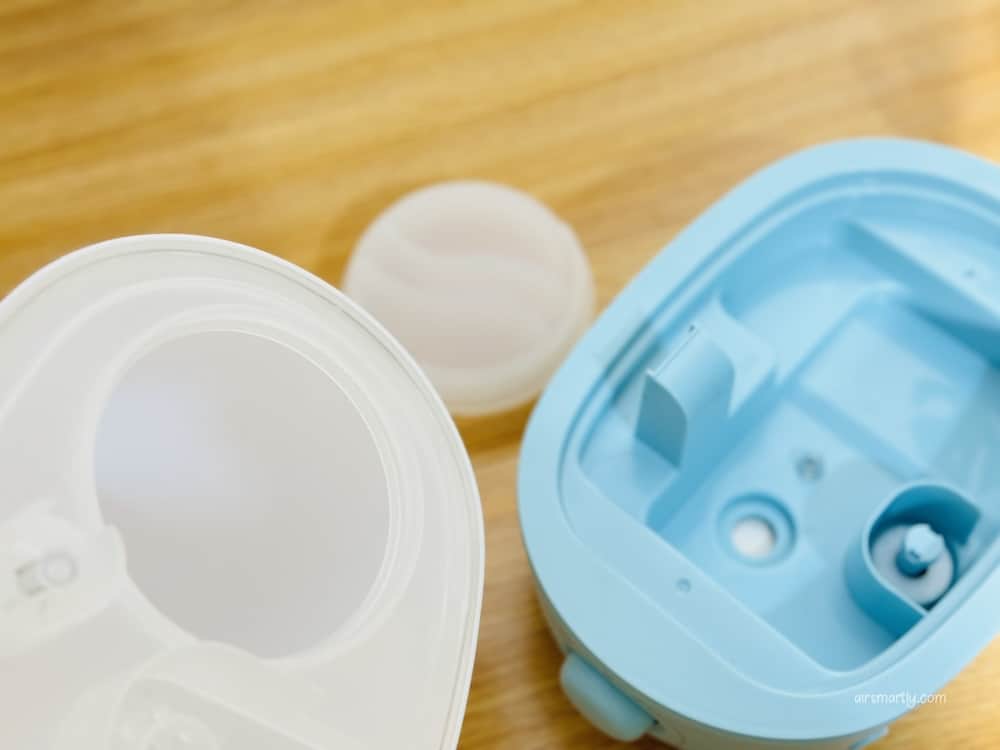
A filterless humidifier is a humidifier that does not have a separate filter to replace every few months. A popular filterless humidifier includes cool mist ultrasonic humidifiers, which are some of the easiest to use and care for.
Pros
When asking about filter vs no filter humidifiers, the cons of filterless are limited but still enough for many people to sway to the filterless options.
Saves Money
If the humidifier has no filter, you won’t need to buy replacements every so often. This pro is excellent because you save money and a trip to the store and the hassle of remembering.
No Need To Replace Filter
When you use a filterless humidifier, there are no filters that you need to change! The lack of a filter takes one thing off your plate, as you won’t need to set any reminders or leave notes around to remember to change or clean the filter.
Cons
Below are the cons you should consider when choosing a filterless humidifier.
Requires More Maintenance
When your humidifier doesn’t have a filter, it will collect dust, dirt, and debris inside the unit. This debris needs to be cleaned out if you want the humidifier to work and last for a long time. You may even need to replace components that become damaged from the dirt and debris.
Lower Air Quality
Without a filter, the humidifier may spray allergens, particles, and other small objects into the air with every spray. A filter prevents this from happening. If you have young children or someone in poor health, this can worsen their condition or make it easier to get sick.
White dust
When your humidifier doesn’t use a filter, it is more likely to spray minerals and other particles with every spritz. As this happens, white dust will build up in your home and on surfaces. As a result, you will need to dust and clean your space more often.
Filtered Humidifier
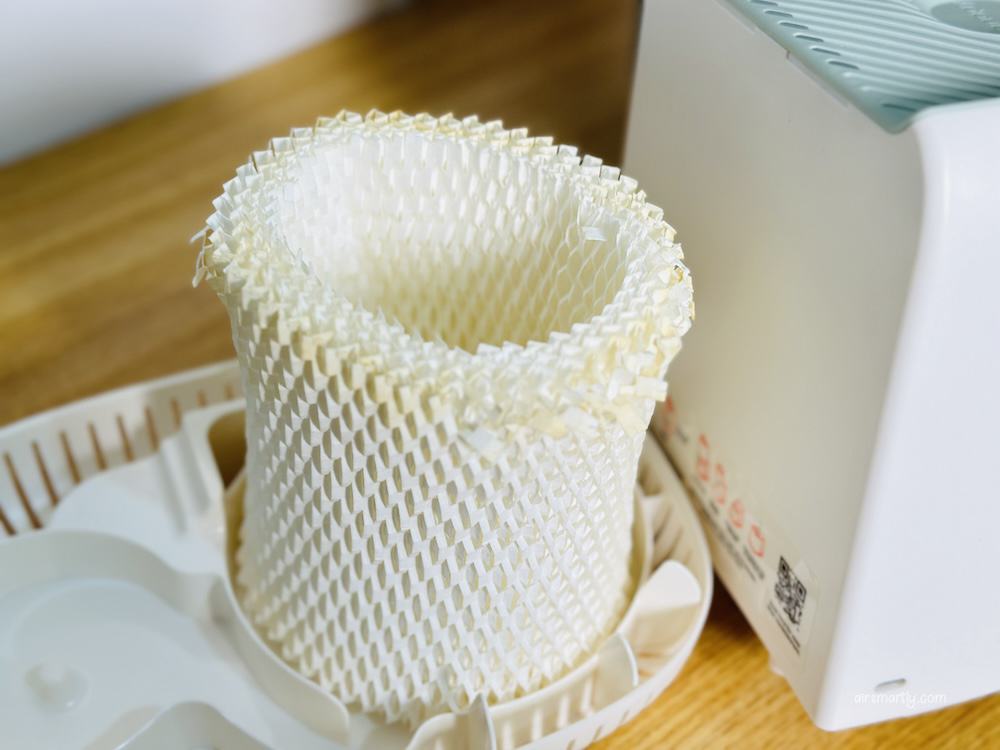
To compare a filter vs no filter humidifier, consider the pros and cons of filtered humidifiers listed below.
Pros
There are many pros associated with filtered humidifiers to keep in mind when choosing your appliance.
Improved Air Quality
A filtered humidifier will keep your home’s surfaces and your breathing air cleaner. Everyone can benefit from better air quality, but pure air is extra important to young children and individuals with persistent health problems.
Works with Unpure Water
When using a filterless humidifier, you need to use pure and distilled water. But if you don’t use filtered water, the filter in the humidifier will block the small particles and other pollutants from spraying out of the humidifier.
Cons
There aren’t many cons to a filtered humidifier, but below are reasons one may avoid a filtered humidifier.
Noisy
Filtered humidifiers can often make more noise as it has to use a fan to push the water through the filter. But for many, this isn’t a super inconvenient con.
Expensive
Filtered humidifiers are not usually more expensive but you must replace the filter every so often. So filters can be costly and annoying.
Is a Humidifier Safe Without a Filter?
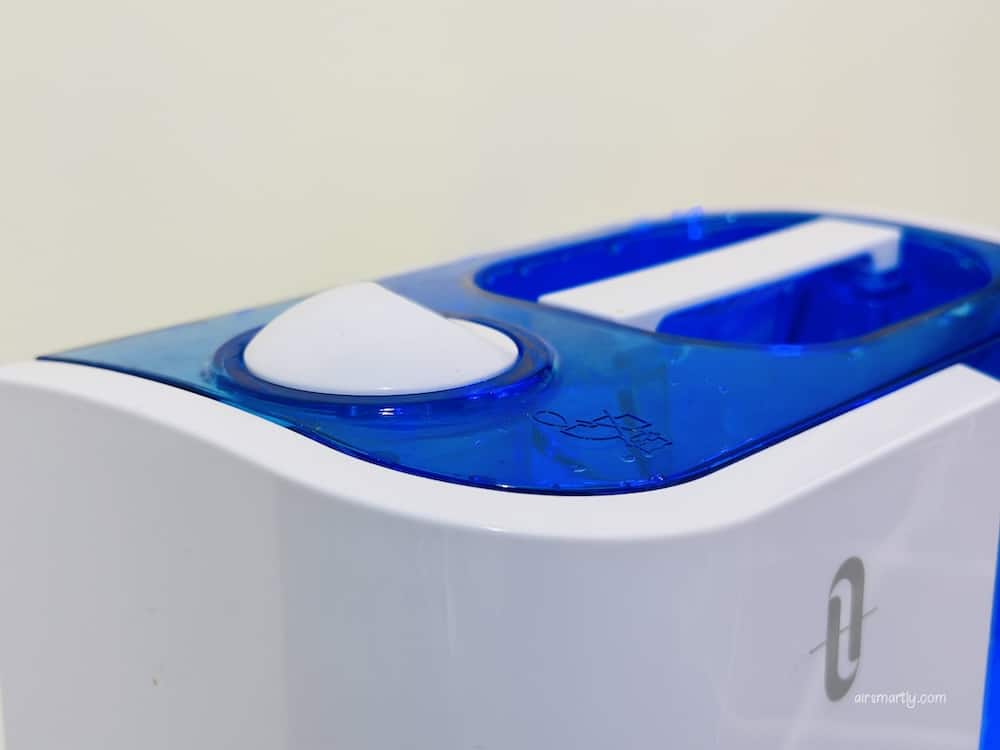
Yes, a humidifier is still a safe appliance even without a filter. However, using a filter can make the humidifier and the air in your home much safer and cleaner. The number of pollutants in the air is terrifying, and they are often completely invisible.
So, although you may not immediately notice the difference between a filtered and filterless humidifier, your body will notice. But if filtered humidifiers prove to be too much of a hassle, inconvenience, or expense, using an unfiltered humidifier will not worsen your air quality.
If you decide not to use a filter for your humidifier, you should always try to fill it with the purest water possible. Water straight from the tap could worsen your air quality or, at the very least, increase the amount of dust in your home. Always distill and filter water before placing it into your humidifier’s tank.
When Is It Better to Use a Filterless Humidifier?
In all honesty, there is no situation where skipping the filter will enhance your air quality or humidifier experience. There are two main reasons people opt for filterless humidifiers: maintenance and cost.
A filtered humidifier must have the filter changed regularly, adding another level of upkeep that many people don’t want to deal with, which is understandable. This reason is why so many people opt for filterless humidifiers and are happy with the results.
Along with physically changing the filter every few months, you also need to purchase new filters. These filters can be expensive and count as another hassle because you must remember to buy them. In contrast, filterless humidifiers do not require additional purchases over the years.
For the individual who wants to save money and effort, filterless humidifiers are the best option. However, the unit itself may require additional cleaning due to the lack of a filter.
Conclusion
When it comes to a filterless humidifier vs a filtered humidifier, the choice is the homeowner’s. Both will work to improve the humidity, which is the ultimate goal of any humidifier.
But if you want a comfortable atmosphere and purified breathing air, it’s best to go with the filtered option or only use the purest water in a filterless unit.

